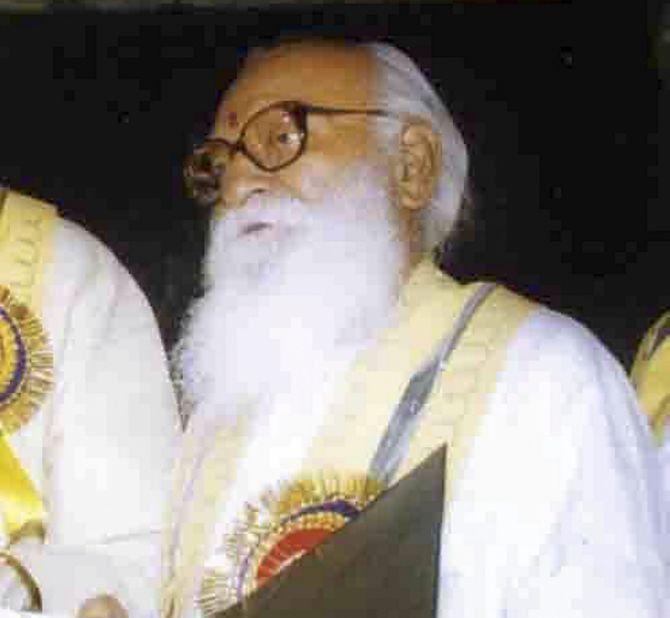
Chandikadas Amritrao Deshmukh, affectionately called Nanaji Deshmukh, is the second leader from the Rashtriya Swayamsewak Sangh ranks after Atal Bihari Vajpayee to be conferred the coveted Bharat Ratna.
Nanaji was posthumously conferred the coveted award along with former President Pranab Mukherjee and singer Bhupen Hazarika.
Nanaji joined the RSS in 1928 as a 12-year-old and later remained a member of Bhartiya Jan Sangh, the political arm of the right-wing group. He later became a part of the Janata Party and Bharatiya Janata Party.
He was a member of the sixth Lok Sabha between 1977 and 1979, and nominated to Rajya Sabha by the then NDA government in 1999.
A married man, according to the Rajya Sabha web site, Nanaji started a chain of Saraswati Vidya Mandir schools throughout India to propagate the ideas of RSS.
He also set up the Deen Dayal Research Institute and the Chitrakoot Gramodaya Vishwavidyalaya in Madhya Pradesh which is considered the country's first rural university.
A Padma Vibhushan awardee, Nanaji was known for his work around 500 villages in Chitrakoot where he tried to bring about all-round development by the people themselves.
He passed away at the age of 94 in 2010 and was considered one of the architects of the Jai Prakash Narain movement against Emergency in 1974, and was also instrumental in the formation of Janata Party government in 1977.
The RSS stalwart had also travelled to the United States, the United Kingdom, Cuba, Germany, Canada, South Korea, Japan, Hong Kong, Singapore, Thailand and Kenya (Africa).











 © 2025
© 2025